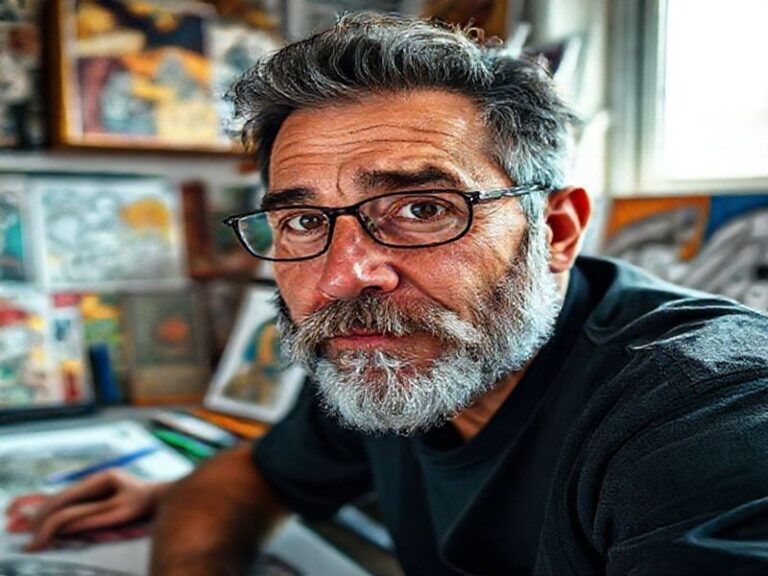From Roc-A-Fella to RICO? Damon Dash’s Global Odyssey Through Fame, Debt, and the Illusion of Wealth
Damon Dash, once the cigar-chomping co-founder of Roc-A-Fella Records, has become an unlikely Rorschach test for late-stage capitalism: to Wall Street he’s a cautionary tale, to Lagos hustlers he’s a patron saint of bootstrap bravado, and to European bankruptcy courts he’s simply file number 17-10456. From his old loft in Tribeca to the chat rooms of Seoul’s crypto cafés, the Dash diaspora now serves as a global parable on how fame, leverage, and hubris travel faster than cash ever could.
Let’s rewind the VHS. In 1999, while the euro was still wet ink and Vladimir Putin was merely a promising ex-KGB intern, Dash was busy convincing the planet that premium-priced vodka and over-stitched denim were viable geopolitical currencies. Rocawear shipped to 3,000 doors worldwide; kids in Kraków and Caracas alike paid rent-level sums to look like they too might yell “I’m a business, man!” in a boardroom. The brand’s success was a soft-power triumph: American streetwear doing the cultural colonization that drone strikes could only dream of.
Fast-forward to the post-2008 crater. When Lehman Brothers imploded, Dash’s balance sheet followed suit like a loyal dog chasing a hearse. Courts from New York to London began politely requesting he return borrowed money, much of it allegedly spent on Basquiats, Bentleys, and a level of litigation that keeps entire law firms in Hamptons rentals. The global recession had its villains—bankers with spreadsheets, regulators with blindfolds—but Dash offered something more cinematic: a mogul who could actually rap about his own Chapter 11.
Yet reports of his financial death are exaggerated, as the man himself would bark at anyone within selfie range. In Accra, start-up founders cite Dash’s “monetize everything” mantra while pitching fintech apps to investors who still think Venmo is a pasta shape. In Dubai, luxury-goods bootleggers print “DD” on knockoff hoodies that sell faster than NFTs of melting glaciers. The brand outlived the balance sheet—proof that intellectual property, like herpes or Cher, is forever.
The international fascination lies in what academics politely call “performative liquidity.” Dash’s Instagram—equal parts motivational quotes, courthouse hallway selfies, and grainy footage of obscure Belgian DJs—reads like a Wes Anderson fever dream financed by Nigerian scam emails. Viewed from Buenos Aires inflation bunkers or Tokyo salaryman cubicles, it’s comforting: if a guy who once owned a Gulfstream now hawks $30 documentaries about himself, maybe our own gig-economy purgatory isn’t so bad.
Meanwhile, geopolitical ironies abound. While the U.S. Treasury prints money with the enthusiasm of a freshman with a fake ID, Dash has pivoted to cryptocurrency, pitching a tokenized Roc-A-Fella revival that promises, among other things, fractional ownership of Jay-Z’s first royalty check. The SEC has questions; the Maltese regulators have already approved the white paper. Somewhere, Satoshi Nakamoto updates his LinkedIn to “It’s complicated.”
His legal skirmishes have likewise gone multinational. Last year a Swiss court froze shares in a holding company Dash insists is worth “billions, bro.” The judge, channeling every European who’s endured an American’s volume, simply asked for audited statements. Dash countered with a livestream rant titled “They Can’t Stop Culture.” The livestream ended when his phone battery died—an inadvertent metaphor for liquidity itself.
So what does Damon Dash mean to a world lurching from pandemic to proxy war? He’s the ghost in the machine of globalized aspiration: proof that you can trademark a lifestyle but not the bill; that hype, like carbon emissions, respects no borders; that in the 21st-century economy, we’re all simultaneously the CEO and the product—just with worse lawyers.
In the end, Dash isn’t merely a man; he’s a floating credit default swap wrapped in a durag. Whether he rebounds or finally liquidates that last Basquiat for bus fare, his saga will keep ricocheting through group chats from Mumbai to Medellín, reminding us that the only thing more contagious than failure is the hope of its redemption.







